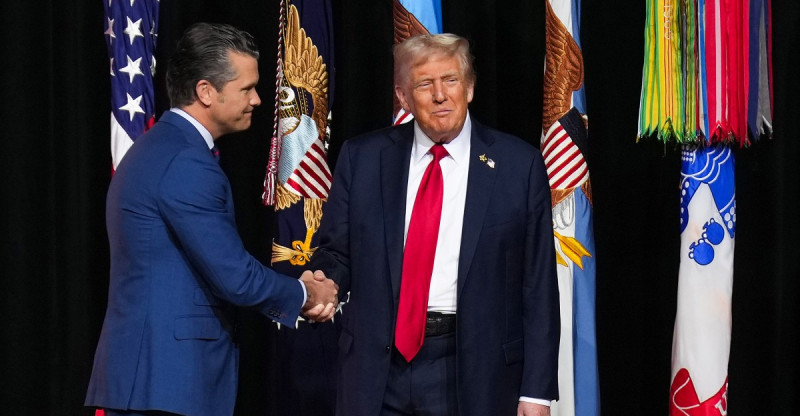In a surprise gathering at Quantico, Virginia, President Donald Trump and Defense Secretary Pete Hegseth addressed hundreds of top generals and admirals on Tuesday, delivering a blunt message about reshaping the U.S. military. Hegseth, a former Fox News host with a background in the Army National Guard—where he served deployments to Iraq and Afghanistan—declared the end of the "Department of Defense" era. From now on, it's the Department of War, he announced, emphasizing a shift toward unrelenting warfighting over what he called outdated political correctness.
The speech came amid swirling reports of Trump signaling a tougher stance on domestic threats, even floating the idea of using American cities as training grounds for troops. "Prepare for war and prepare to win," Hegseth urged the commanders, railing against diversity initiatives and what he termed "fat generals" who he believes have weakened readiness. Indeed, he warned that officers who disagree with the new standards—stricter fitness rules, no more "woke" policies—should simply resign. Trump, joining in, defended deploying military force against the "enemy within," a phrase that's drawn sharp rebukes from critics like national security expert Tom Nichols, who called it a dangerous politicization of the armed forces.
However, the hastily organized event, which pulled leaders from around the globe, felt more like a rally than a strategy session to some observers. Hegseth recounted his own military service to underscore his credentials, yet questions linger about his limited combat experience compared to the seasoned officers in the room. Moreover, the rhetoric about declaring war on internal foes echoes Trump's past declarations, but details remain vague—no formal war powers invoked, just a push for cultural overhaul. Still, the timing, just days after election-year tensions, amplifies concerns over the military's apolitical oath.
Reactions poured in quickly: Democrats decried the move as divisive, while some Republicans praised the focus on strength. Yet for the rank-and-file service members, the real impact might unfold in coming weeks as these policies take shape. One wonders how this bold pivot will ultimately fare in bolstering—or burdening—America's defense posture.

